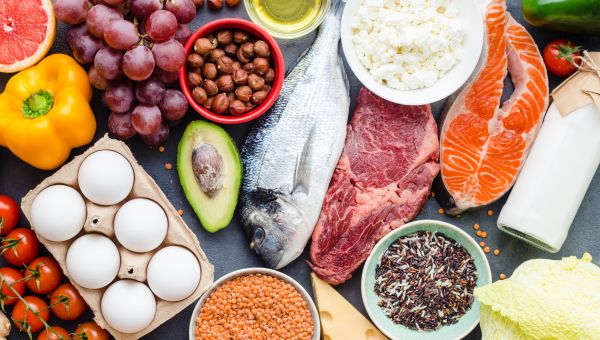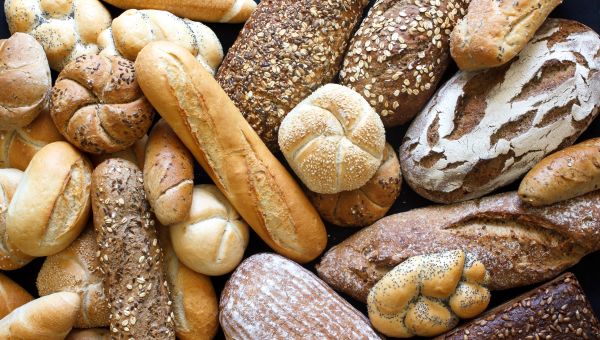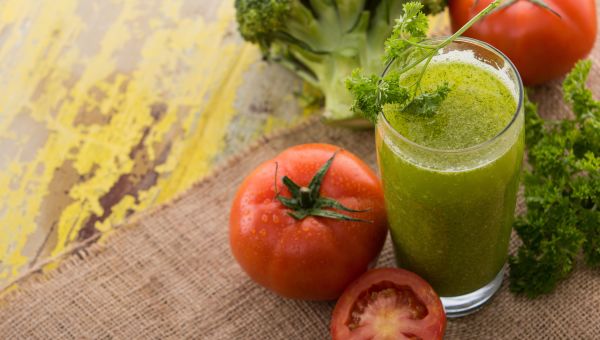7 health myths you need to stop believing now
Get the truth about common falsehoods.
Updated on November 22, 2022

Health and wellness are complicated subjects, so it’s no surprise that many faulty or outdated beliefs persist years after they’ve been disproved.
No matter how many times they’ve been debunked, these seven health myths feel like they’ve been around forever. Here's why you should put them aside once and for all.

Vaccines cause autism
This false belief was popularized by a small 1998 study published in The Lancet, which was thoroughly discredited and later retracted entirely. The researcher—British activist Andrew Wakefield—lost his medical license in 2010 for ethics violations related to the study, including performing invasive tests on children without approval, falsifying medical records, and receiving funding from a lawyer hoping to sue vaccine manufacturers.
Later research, including a 2020 Cochrane analysis involving more than 23 million participants and a 2015 JAMA study of nearly 96,000 children, have found no link between the MMR vaccine and autism.

GMO foods are unhealthy
Genetically modified organisms (GMOs) have been something of a boogeyman since the first genetically modified crop (a tobacco plant) was produced in 1983. Detractors cite studies done on animals that suggest GMOs are unhealthy and possibly affect fertility, the gastrointestinal tract, the liver, the kidneys, and multiple other body systems.
However, more recent studies have shown GMOs are safe for consumption. In 2016, the National Academies of Sciences, Engineering, and Medicine reviewed 900 pieces of scientific literature and heard from 80 experts and determined that GMOs are no more dangerous than other foods.
Keith Roach, MD, associate professor in clinical medicine in the division of general medicine at Weill Cornell Medical College and New York Presbyterian Hospital, notes that genetic engineering is more precise and less dangerous than the selective breeding humans have been using to manipulate plants and animals for thousands of years.

Eating fat or carbs makes you fat
For years, peaking in the 1980s and ‘90s, fitness and nutrition gurus pinned weight gain on dietary fat. By the turn of the millennium, many set their sights on carbohydrates, helping to popularize low-carb eating plans like the Atkins diet.
So, do fat and carbs really contribute to weight gain? The answer is yes and no. Gaining and losing weight is best understood through a simple math formula: If the number of calories you eat is greater than the number you burn, you’ll put on pounds. If it’s fewer than the calories you burn, you’ll likely drop pounds. Consuming excess dietary fat and carbs can add to your overall calorie intake, leading to weight gain.
That said, unsaturated fats—like those found in fish, nuts, and vegetable oils—benefit your heart and are necessary parts of a healthy overall diet. The same goes for high-quality carbohydrates, including whole grains, beans, fruits, and vegetables. They provide fiber and a variety of other nutrients crucial to good health.

Avoid gluten for better health
From gluten-free pizza to gluten-free bread, a wide range of gluten-free foods has become increasingly available in U.S. grocery stores in recent years. And while people go gluten-free for a variety of health reasons, the truth is that most people are fine eating gluten, which are proteins found primarily in wheat, barley, and rye.
The exceptions? Those with celiac disease—an autoimmune disorder in which gluten causes inflammation of the small intestine—and people with a wheat allergy or a difficult-to-diagnose gluten sensitivity should avoid gluten. For most other people, there’s no science-backed reason to go gluten-free.

Exercise alone will give you visible abs
You know those ads that promise that a certain workout will “melt belly fat”? Ignore them.
Here’s why: While exercises like sit-ups and planks can strengthen your abdominal muscles, they won’t lead to fat loss around your stomach. In fact, even if you’re eating fewer calories, being more physically active, and actively trying to drop pounds, it’s not possible to choose where you lose body fat. That targeted approach is called spot reduction, and researchers have found it to be ineffective.
More effective? Sticking to a healthy overall approach—eating a wholesome, balanced diet and getting sufficient exercise, which can lead to better fitness and more tone all over.

You need to detox
Cabbage soup for a week? Take a pass. In fact, pass on all detoxification products and programs promising to wring the poisons from your body and promote weight loss. According to the National Center for Complementary and Integrative Health, there have been very few long-term studies on the effectiveness of detox regimens. And many existing studies have largely found detoxes to be unsuccessful or bogus—and sometimes, outright dangerous.
For example, a 2017 review of studies in Nutrition and Obesity showed that while people may initially lose weight on juicing and detoxification diets, the programs often lead to weight gain in the long run. Another 2015 review of studies in the Journal of Human Nutrition and Dietetics determined there’s little scientific evidence behind the claims made by detox diets and cleansing kits.
The good news is, you already have the best detox kit you can get: Your liver. One of the liver’s jobs is to absorb toxic substances, render them harmless, and get rid of them, either into the bloodstream or the bowels. That includes substances produced by the body, like ammonia, or those you take in, like alcohol.
And for long-lasting weight management? Well-established guidance remains the wisest bet for many people—including following a nutritious and balanced diet, controlling portion sizes, and exercising.

You’ll want less sex as you get older
As you age, your sex drive may dip for a variety of reasons. Changing hormone levels, medications, stress, relationship troubles, and a number of other causes can put a damper on desire, especially as people get older. But it’s not inevitable, and many of us can have satisfying sex at any age.
One smart way to increase satisfaction: Make it an important part of your relationship. A 2017 Journal of Sex Research study found that the quality of participants’ sex lives often increased as they aged. Researchers suggested that improvement was linked to modifiable factors—things you have an influence over—such as investing thought and effort into maintaining a good sexual relationship.

Wakefield AJ, Murch SH, et a. RETRACTED: Ileal-lymphoid-nodular hyperplasia, non-specific colitis, and pervasive developmental disorder in children. The Lancet. February 28, 2998. 351(9103): p637-641.
Sarah Boseley. Andrew Wakefield found 'irresponsible' by GMC over MMR vaccine scare. The Guardian. January 28, 2010.
Di Pietrantonj C, Rivetti A, et al. Vaccines for measles, mumps, rubella, and varicella in children. Cochrane Database Syst Rev. 2020 Apr 20;4(4):CD004407.
Jain A, Marshall J, et al. Autism Occurrence by MMR Vaccine Status Among US Children With Older Siblings With and Without Autism. JAMA. 2015;313(15):1534–1540.
Koszowski B, Goniewicz ML, et al. Genetycznie modyfikowany tytoń--szansa czy zagrozenie dla palaczy? [Genetically modified tobacco--chance or threat for smokers?]. Przegl Lek. 2007;64(10):908-12.
American Academy of Environmental Medicine. Genetically Modified Foods. May 8, 2009.
National Academies Sciences Engineering Medicine. Genetically Engineered Crops: Experiences and Prospects- New Report. May 17, 2016.
La Berge AF. How the ideology of low fat conquered america. J Hist Med Allied Sci. 2008 Apr;63(2):139-77.
Álvarez-Pérez J, Sánchez-Villegas A, et al. PREDIMED Study Investigators. Influence of a Mediterranean Dietary Pattern on Body Fat Distribution: Results of the PREDIMED-Canarias Intervention Randomized Trial. J Am Coll Nutr. 2016 Aug;35(6):568-580.
Science Daily. Mediterranean diet high in healthy fat does not lead to weight gain, according to randomized trial. June 7, 2016.
Mayo Clinic. Counting calories: Get back to weight-loss basics. August 24, 2022.
Harvard TH Chan School of Public Health. Fats and Cholesterol. Accessed November 22, 2022.
Harvard TH Chan School of Public Health. Carbohydrates.
Celiac Disease Foundation. What is Gluten? January 26, 2021.
Harvard Health Publishing. Ditch the gluten, improve your health? April 14, 2022.
Johns Hopkins Medicine. What Is Gluten and What Does It Do? Accessed November 22, 2022.
Ramírez-Campillo R, Andrade DC, et al. Regional fat changes induced by localized muscle endurance resistance training. J Strength Cond Res. 2013 Aug;27(8):2219-24.
American Council on Exercise. Myths and Misconceptions: Spot Reduction and Feeling the Burn. November 25, 2013.
NIH: National Center for Complementary and Integrative Health. “Detoxes” and “Cleanses”: What You Need To Know. Last updated September 2019.
Obert J, Pearlman M, et al. Popular Weight Loss Strategies: a Review of Four Weight Loss Techniques. Nutrition and Obesity. November 2017.
Klein AV, Kiat H. Detox diets for toxin elimination and weight management: a critical review of the evidence. J Hum Nutr Diet. 2015 Dec;28(6):675-86.
InformedHealth.org. How does the liver work? Last updated August 22, 2016.
The American College of Obstetricians and Gynecologists. Your Sexual Health. Last reviewed July 2022.
Forbes MK, Eaton NR, Krueger RF. Sexual Quality of Life and Aging: A Prospective Study of a Nationally Representative Sample. J Sex Res. 2017 Feb;54(2):137-148.
More On


video

article

slideshow


video


video
